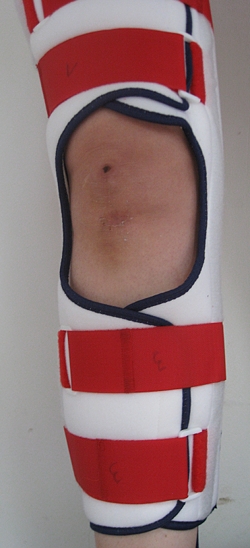about reputation
Tuesday, September 29th, 2009
In a comment about a recent study whose neutrality was not so clear I was asked by a reader:
If there is all this data as you say on the internet then why do you need this reputation thing at all, i mean can’t you just check wether this Greiser person is right?
The study which the reader meant to be checked used data about leukemia occurences in children who lived in the vicinity of a nuclear power plant. This data was -to a great extend- gathered together via the internet and was then statistically evaluated. So the reader assumed that -given that all the necessary information is available- that one could just check wether the study is right.
My answer:
In principle -given that all information is provided in the study- and – given that oneself can access all data (this is unfortunately not always that easy) one can check wether all the in the study given data was correctly evaluated, one can follow the statistic reasoning and the methods which were used a.s.o. The question wether the study is correct or not should thus not be expected to be answered plainly with a yes or no, but at least include explanations about the involved methodology. All that takes a lot of knowledge and experience which is -for an outsider- not so easy to acquire. That is even though I am a mathematician it would take me probably quite some time to understand and evaluate the involved reasoning (it is not exactly my field), it is quite likely that I would end up with open questions and thus would need to consult other people.
One can compare this a little bit with a medical diagnosis, that is in principle all the medical information is available in text books, articles etc. and without having studied medicine one can have a “feeling” about how correct a diagnosis is, however – depending on the symptoms and ones own knowledge- people usually prefer to see a doctor instead of feeling inclined to cure themselves. The craftmanship of a mathematician -although this may not be so obvious- is comparable to that of a physician.
Nevertheless it happens that people won’t go see a doctor. This may happen because people can’t afford to pay a doctor and/or because they are convinced that their methods (or those of a non-medical-doctor) are better. And there are indeed cases were non-doctors may have better results. Nevertheless the typical scenario is that a learned doctor knows more and can help you better than a non-doctor. This holds also true for “crowd knowledge” that is you may ask around in fora about what to do with what symptoms, but typically you wouldnt like to rely on them completely.
Here one should note an important feature: Among others a doctor is someone who was evaluated by a certain group of people who know the subject. That is professional organisations, universities etc. hand out certificates which should give you some trust that this person knows what he/she is saying and doing. This is mostly what reputation is about. It is a guideline. Or put differently: Given a specified task the chance that you will end up with a completely incapable person which had been certified for this task by a respectable institution should be smaller than the chance that an uncertified person is incapable. This doesnt exclude the case that there are uncertified persons with a better knowledge than certified ones. This is just -at the moment- on average less likely.
I wrote “at the moment”, because there are unfortunately tendencies which dilute this rather helpful feature, as can be seen e.g. in the certification problem in the already mentioned outsourced learning environments/online classes. Certification problems can also be found in “cheap education” e.g. by certifying large amounts of students, which makes cheating easier (for example by handing in essays, which were not authored by oneself), academic misconduct and/or corruption e.g. due to financial interests etc. Moreover the possibilities for free autonomous learning are much, much better than before (which is good), so the number of highly trained individuals without a certificate are most probably on the rise. Traditional systems of evaluation may thus be loosing their influence. Personal recomendations would thus become more important, which makes it on the other hand harder to enter a foreign field as an outsider.
The above (unemployed) patient in the foto had a bad bike accident, which resulted unfortunately not only in a torn muscle. Thanks to a “still” rather good medical care in Germany within one week and with the help of several specialists and MRI a not so common injury could be diagnostized fastly and within 2 months the patient should be able to walk properly again….
Why do I write “still”?
Because in Germany the costs for health care are on the rise. This is not only due to an aging population but also to a great extend due to rising costs for pharmaceutical products, where new, patented products play a major role. According to this article in Berliner Zeitung on total the costs for physicians in Germany are meanwhile smaller than the costs for pharmaceutical products. Nevertheless suggestions of politicians which are about to form Germanys new government suggest to cut down on health care on the whole and instead secure a socalled “basic care” for the masses which could be supplemented by additional care – if you have the money. As a result the stockmarket for certain pharmaceutical companies soared right after the elections.
historical reading: -> hippocratic oath